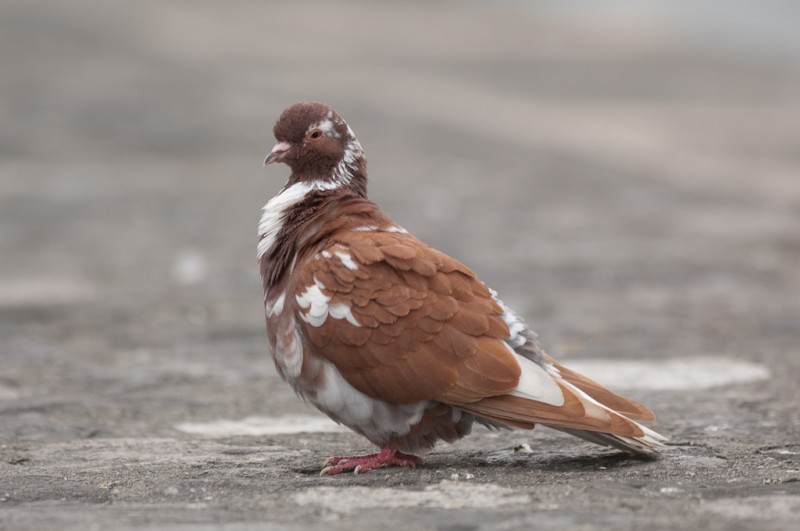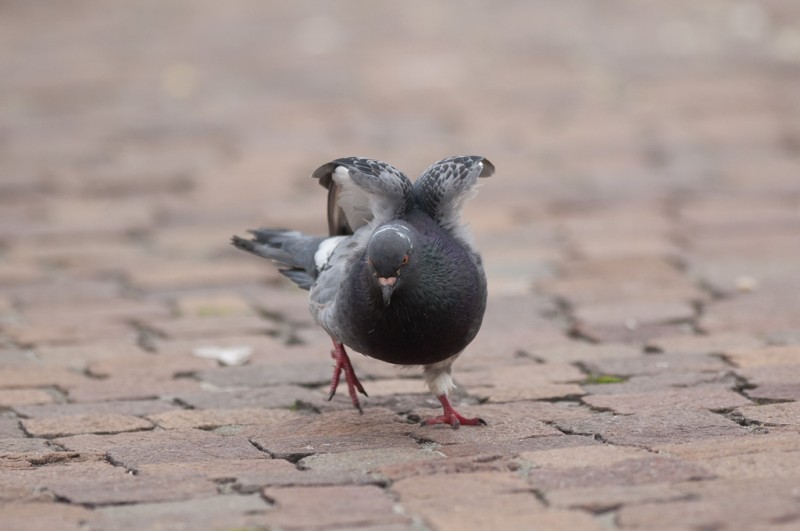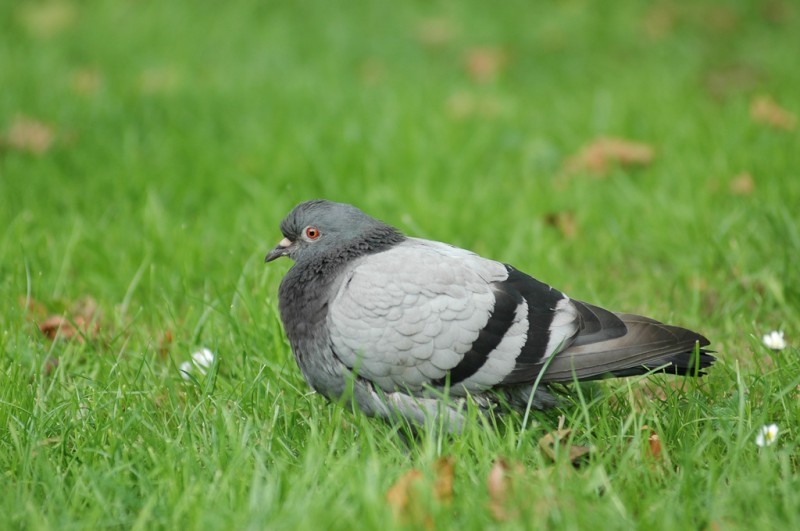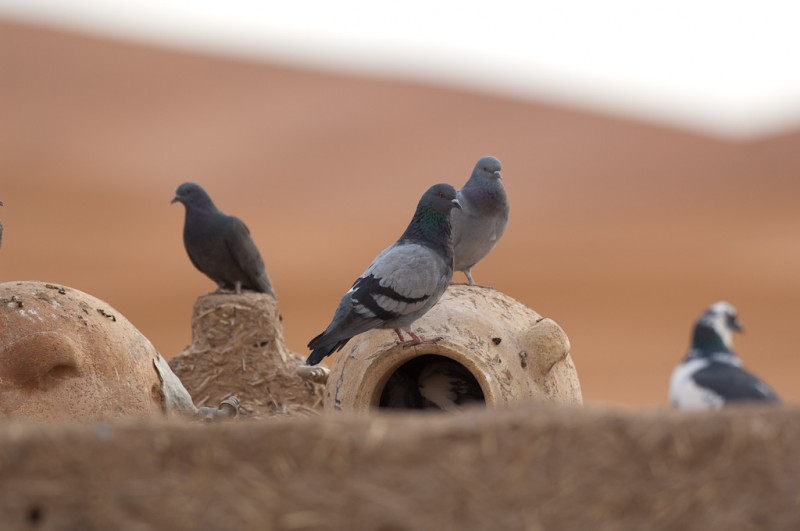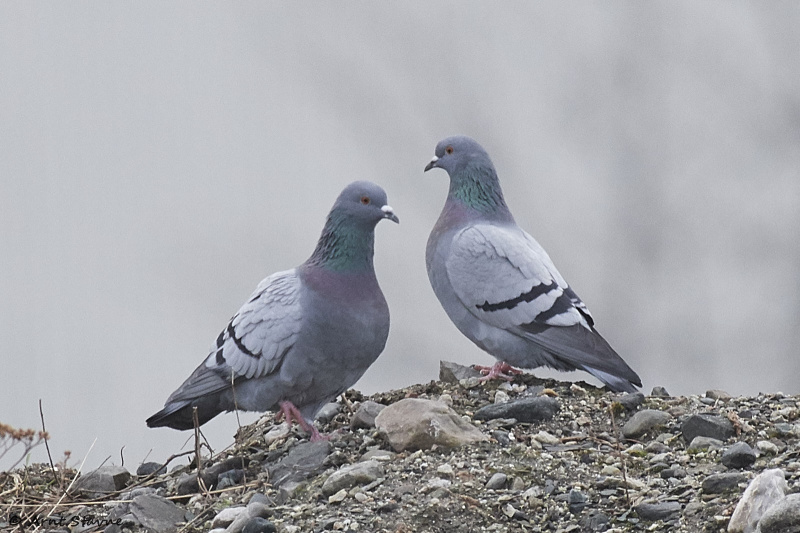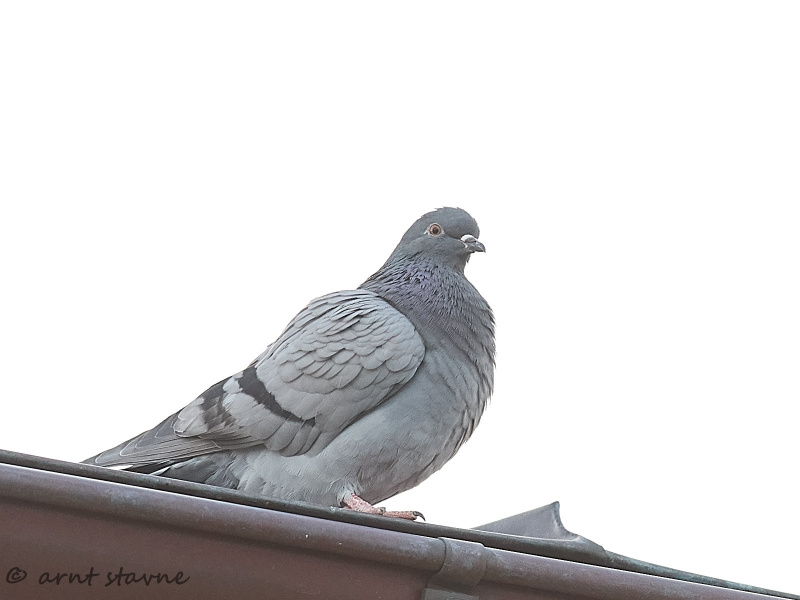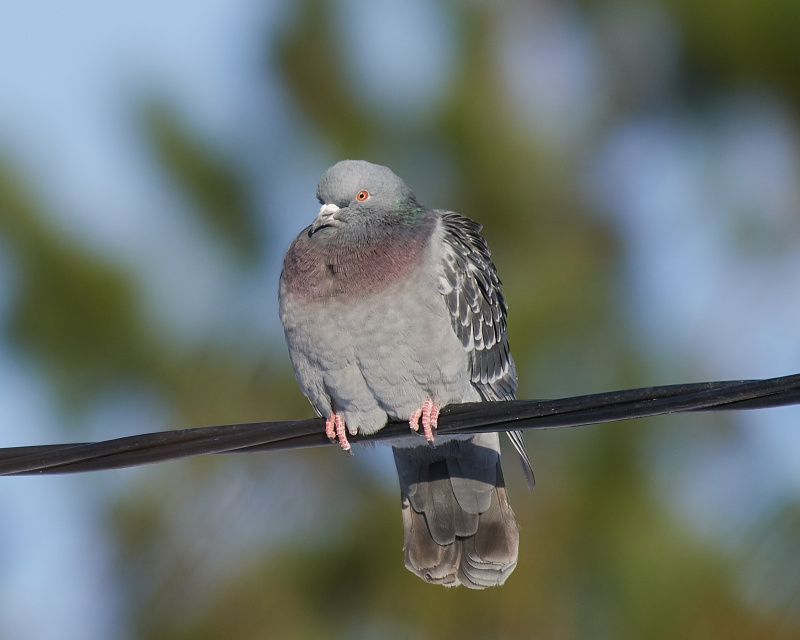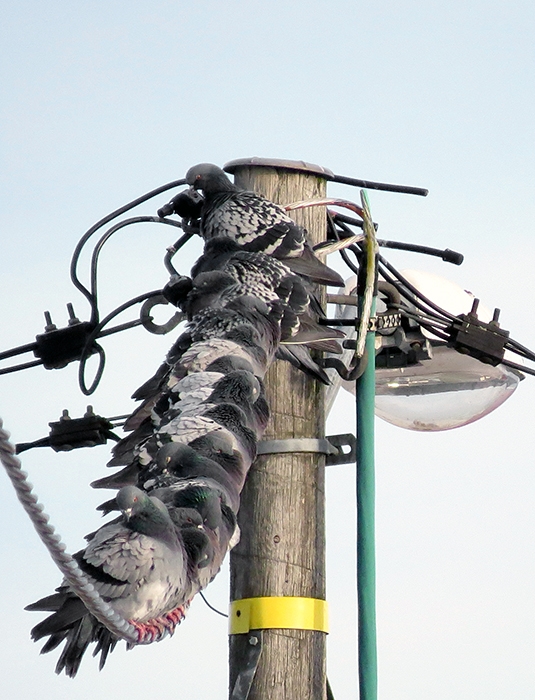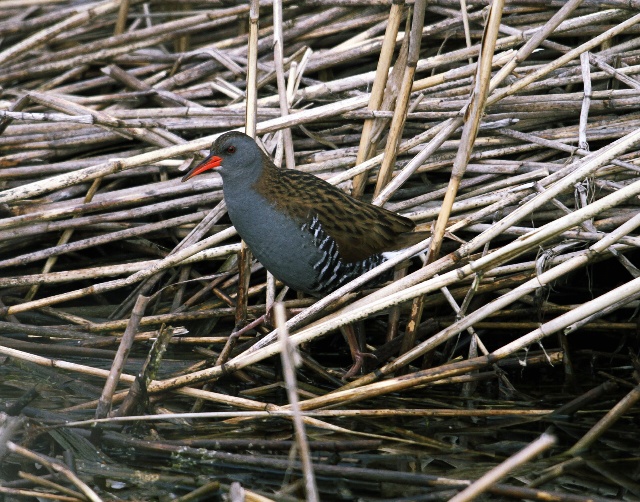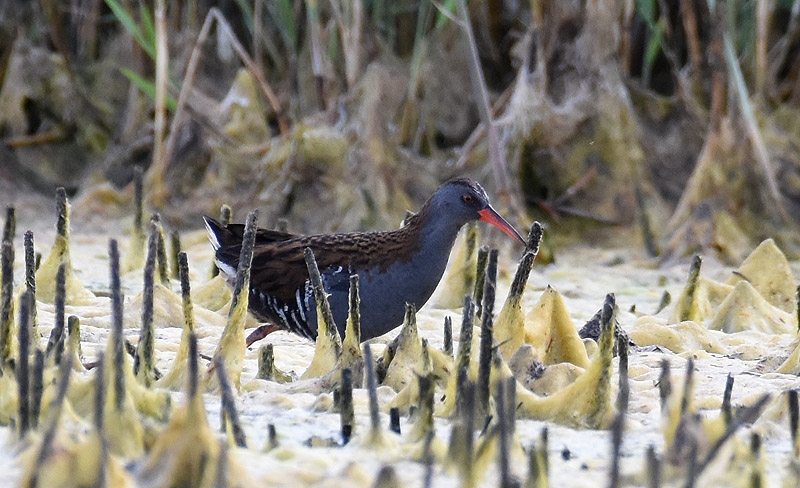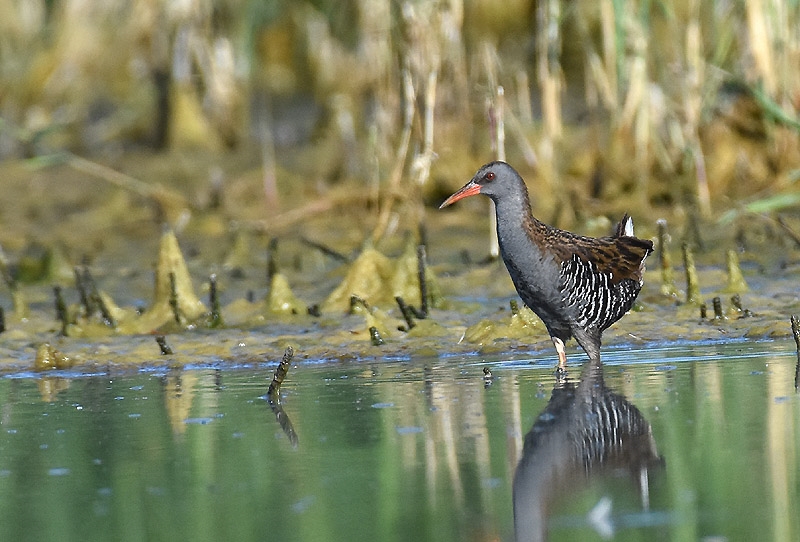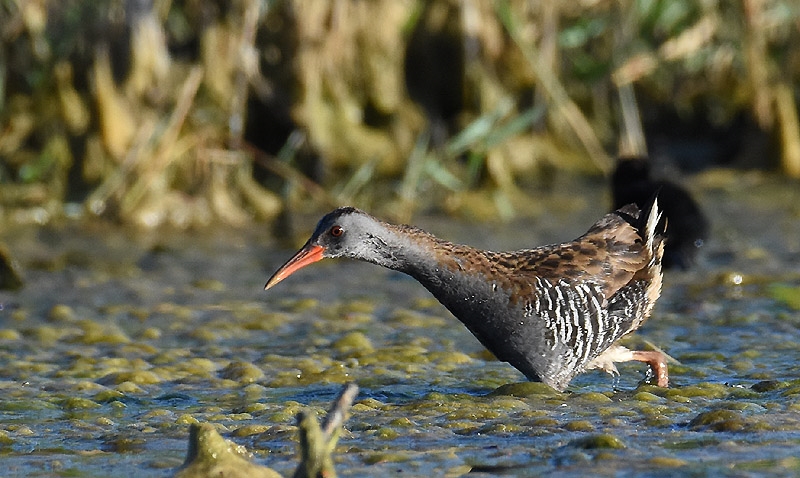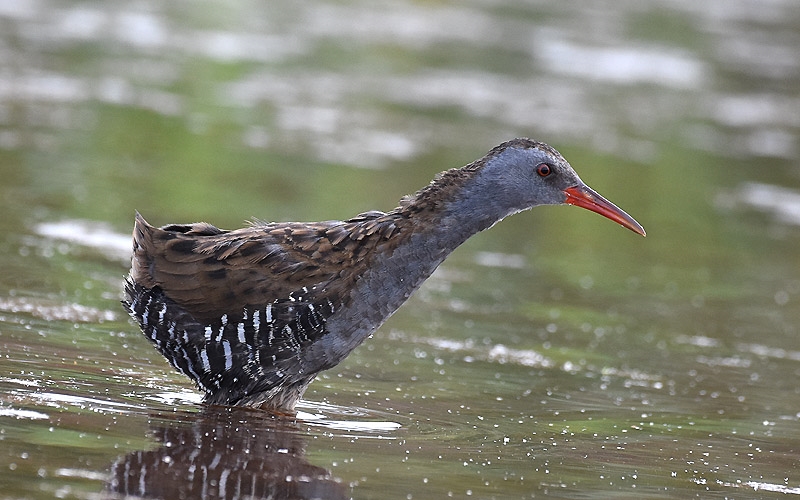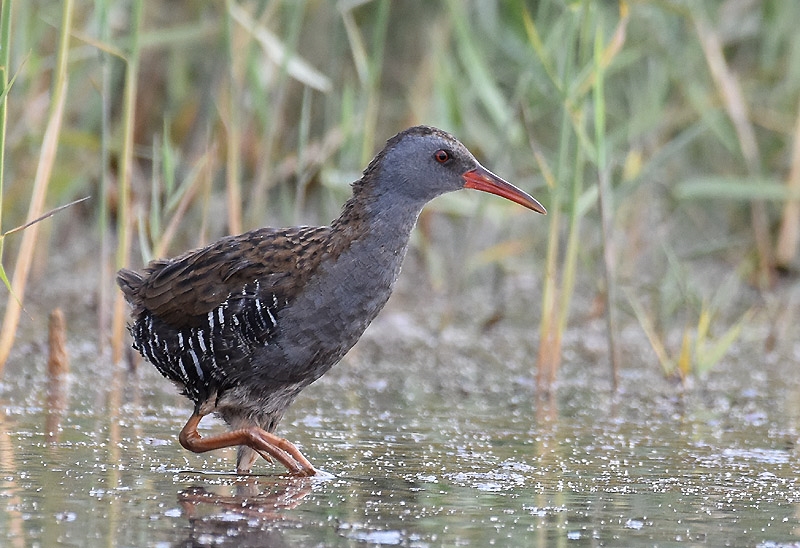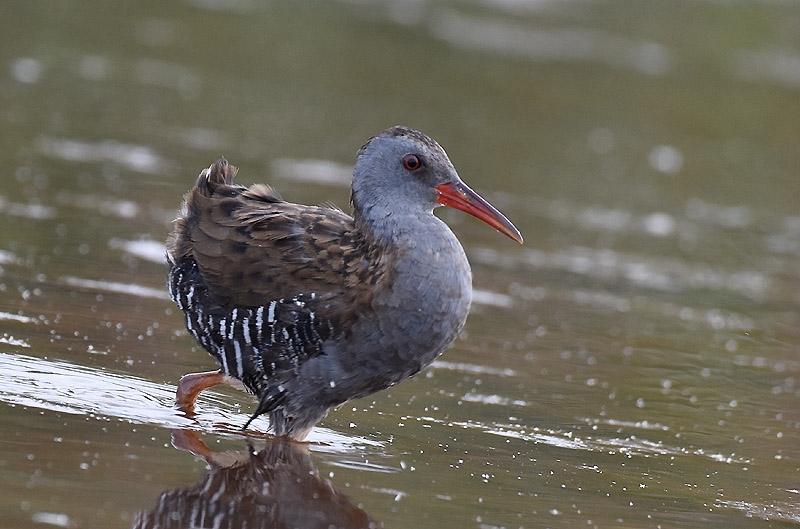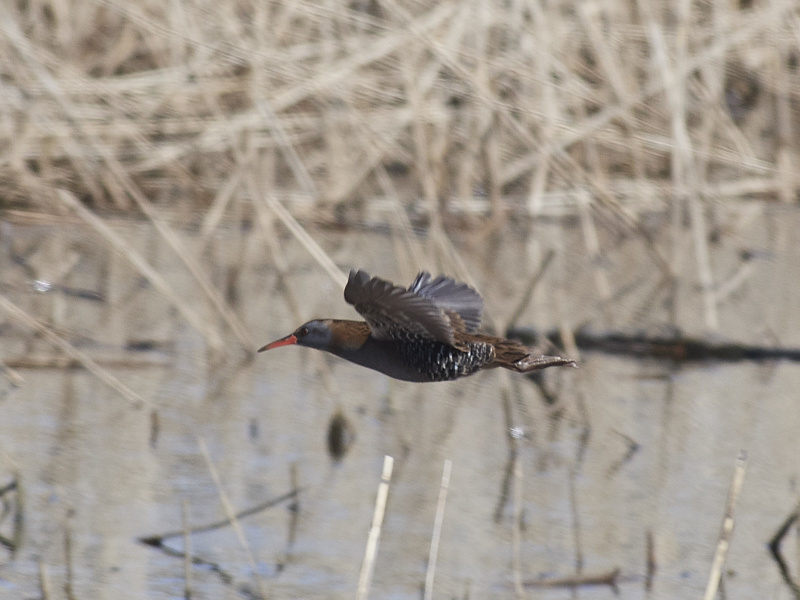Rock Dove (Columba livia)
Water Rail (Rallus aquaticus)
Clearly smaller than Wood Pigeon. Plumage highly variable, and some morphs quite similar to Stock Dove. Differs from latter in complete dark wingbars on secondary coverts (not only inner coverts). Back light grey, contrasting with darker grey neck and head. Often with white patch at lower back, but not always. Underside of wings very pale, and dark trailing edge of tail fairly narrow. Lacks Wood Pigeon's white wing-patches. Feral Pigeon is the same species as Rock Dove. The existance of a population of pure wild Rock Doves without any mixed genes from feral populations anywhere in the world is debateable. There are many traits that can determine a bird as feral (like asymmetrical pigmentation), but birds with "classic" wild Rock Dove plumage also exists in the feral populations.
Sound:Not loud. Song a two-syllable, but continuous cooing. First a rolling ascending "orrrrrr" immediately followed by a short descending "oohh". Wings produce a quite audible whistling sound.
Song:
Distribution:
Wikipedia: map (se also Xeno-canto below)
Ecology:Birdlife ecology
Links:
Observation.org Latest observations
Image search Flickr NB! May give other species
CCFairly large rail with secretive behaviour. Distinguished by long red bill, brownish upperparts, slate grey underparts, and coarsely barred flanks. White and unmarked vent often visible due to frequently used posture with flirted tail. Long legs and toes visible in flight.
Sound:Varied but distinct. Most heard is the territorial song consisting of short, nasal, sharp grunts "tuck- tuck-tuck", ending with a drawn-out trill rising and falling in pitch "kiiiieeerrrr". Another diagnostic call is heard from excited birds; a longer pig-like shrilling squeal, with waning repetitions. A bit like someone squeezing a rubber toy. Also short and sharp calls "kvii".
Song:
Pig call:
Distribution:
Wikipedia: map (se also Xeno-canto below)
Ecology:Birdlife ecology
Links:
Observation.org Latest observations
Image search Flickr NB! May give other species
CCSounds:Recorded by Edmunds Racinskis

 English
English Albanian
Albanian
 Armenian
Armenian
 Bulgarian
Bulgarian
 Catalan
Catalan
 Croatian
Croatian
 Czech
Czech
 Danish
Danish
 Dutch
Dutch
 Finnish
Finnish
 French
French
 Georgian
Georgian
 German
German
 Greek
Greek
 Hungarian
Hungarian
 Italian
Italian
 Latvian
Latvian
 Lithuanian
Lithuanian
 Macedonian
Macedonian
 Norwegian
Norwegian
 Polish
Polish
 Portuguese
Portuguese
 Romanian
Romanian
 Russian
Russian
 Sami : Lule sami
Sami : Lule sami
 Sami : North sami
Sami : North sami
 Sami : South sami
Sami : South sami
 Scientific names
Scientific names
 Serbian
Serbian
 Spanish
Spanish
 Swedish
Swedish
 Ukrainian
Ukrainian


